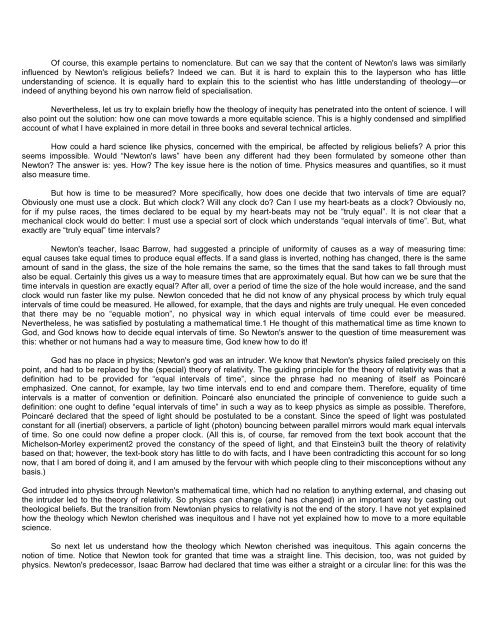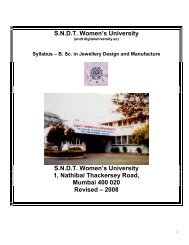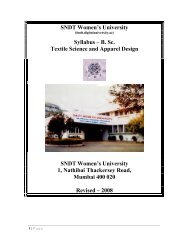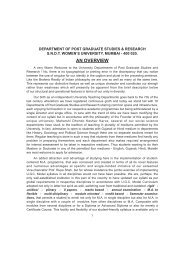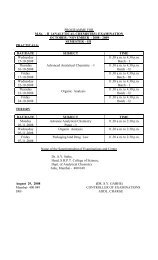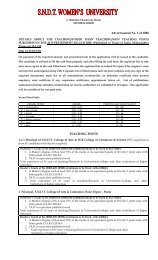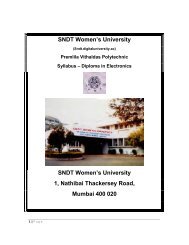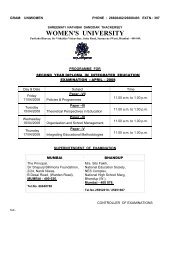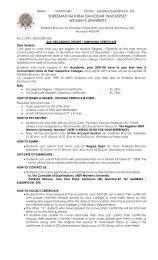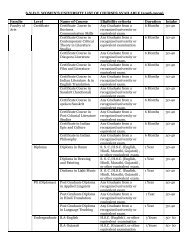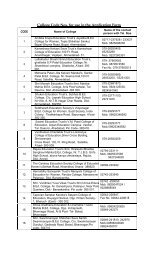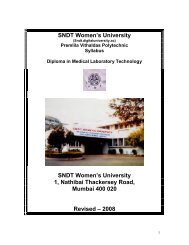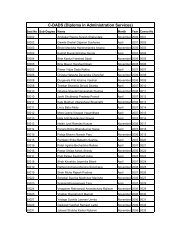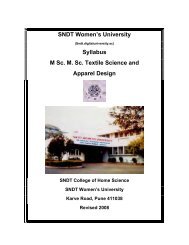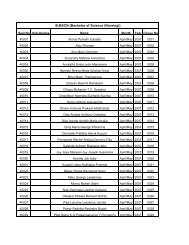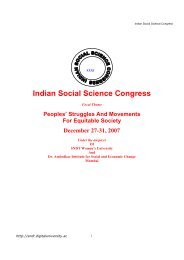XXXI Abstracts Part 1 page 1-189
XXXI Abstracts Part 1 page 1-189
XXXI Abstracts Part 1 page 1-189
Create successful ePaper yourself
Turn your PDF publications into a flip-book with our unique Google optimized e-Paper software.
Of course, this example pertains to nomenclature. But can we say that the content of Newton's laws was similarly<br />
influenced by Newton's religious beliefs? Indeed we can. But it is hard to explain this to the layperson who has little<br />
understanding of science. It is equally hard to explain this to the scientist who has little understanding of theology—or<br />
indeed of anything beyond his own narrow field of specialisation.<br />
Nevertheless, let us try to explain briefly how the theology of inequity has penetrated into the ontent of science. I will<br />
also point out the solution: how one can move towards a more equitable science. This is a highly condensed and simplified<br />
account of what I have explained in more detail in three books and several technical articles.<br />
How could a hard science like physics, concerned with the empirical, be affected by religious beliefs? A prior this<br />
seems impossible. Would “Newton's laws” have been any different had they been formulated by someone other than<br />
Newton? The answer is: yes. How? The key issue here is the notion of time. Physics measures and quantifies, so it must<br />
also measure time.<br />
But how is time to be measured? More specifically, how does one decide that two intervals of time are equal?<br />
Obviously one must use a clock. But which clock? Will any clock do? Can I use my heart-beats as a clock? Obviously no,<br />
for if my pulse races, the times declared to be equal by my heart-beats may not be “truly equal”. It is not clear that a<br />
mechanical clock would do better: I must use a special sort of clock which understands “equal intervals of time”. But, what<br />
exactly are “truly equal” time intervals?<br />
Newton's teacher, Isaac Barrow, had suggested a principle of uniformity of causes as a way of measuring time:<br />
equal causes take equal times to produce equal effects. If a sand glass is inverted, nothing has changed, there is the same<br />
amount of sand in the glass, the size of the hole remains the same, so the times that the sand takes to fall through must<br />
also be equal. Certainly this gives us a way to measure times that are approximately equal. But how can we be sure that the<br />
time intervals in question are exactly equal? After all, over a period of time the size of the hole would increase, and the sand<br />
clock would run faster like my pulse. Newton conceded that he did not know of any physical process by which truly equal<br />
intervals of time could be measured. He allowed, for example, that the days and nights are truly unequal. He even conceded<br />
that there may be no “equable motion”, no physical way in which equal intervals of time could ever be measured.<br />
Nevertheless, he was satisfied by postulating a mathematical time.1 He thought of this mathematical time as time known to<br />
God, and God knows how to decide equal intervals of time. So Newton's answer to the question of time measurement was<br />
this: whether or not humans had a way to measure time, God knew how to do it!<br />
God has no place in physics; Newton's god was an intruder. We know that Newton's physics failed precisely on this<br />
point, and had to be replaced by the (special) theory of relativity. The guiding principle for the theory of relativity was that a<br />
definition had to be provided for “equal intervals of time”, since the phrase had no meaning of itself as Poincaré<br />
emphasized. One cannot, for example, lay two time intervals end to end and compare them. Therefore, equality of time<br />
intervals is a matter of convention or definition. Poincaré also enunciated the principle of convenience to guide such a<br />
definition: one ought to define “equal intervals of time” in such a way as to keep physics as simple as possible. Therefore,<br />
Poincaré declared that the speed of light should be postulated to be a constant. Since the speed of light was postulated<br />
constant for all (inertial) observers, a particle of light (photon) bouncing between parallel mirrors would mark equal intervals<br />
of time. So one could now define a proper clock. (All this is, of course, far removed from the text book account that the<br />
Michelson-Morley experiment2 proved the constancy of the speed of light, and that Einstein3 built the theory of relativity<br />
based on that; however, the text-book story has little to do with facts, and I have been contradicting this account for so long<br />
now, that I am bored of doing it, and I am amused by the fervour with which people cling to their misconceptions without any<br />
basis.)<br />
God intruded into physics through Newton's mathematical time, which had no relation to anything external, and chasing out<br />
the intruder led to the theory of relativity. So physics can change (and has changed) in an important way by casting out<br />
theological beliefs. But the transition from Newtonian physics to relativity is not the end of the story. I have not yet explained<br />
how the theology which Newton cherished was inequitous and I have not yet explained how to move to a more equitable<br />
science.<br />
So next let us understand how the theology which Newton cherished was inequitous. This again concerns the<br />
notion of time. Notice that Newton took for granted that time was a straight line. This decision, too, was not guided by<br />
physics. Newton's predecessor, Isaac Barrow had declared that time was either a straight or a circular line: for this was the


